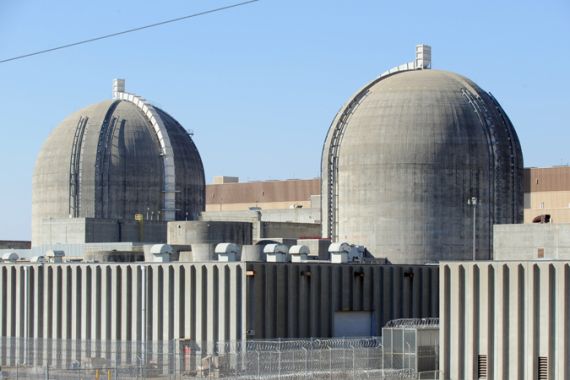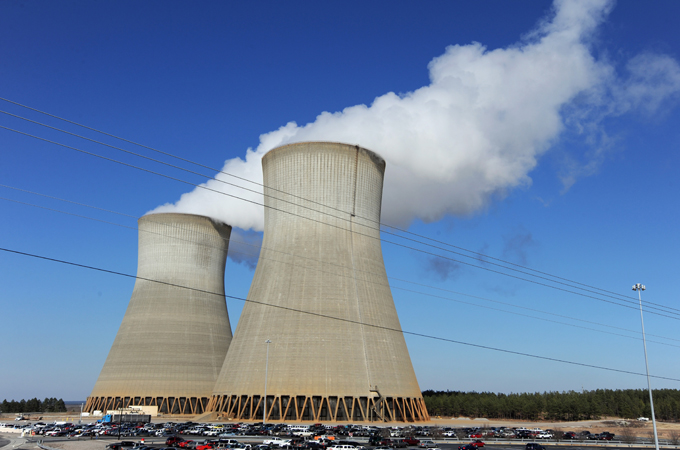Kuwait to build nuclear reactors
Four plants to be in place by 2022, each with 1,000 megawatts, senior energy committee official tells state media.

 |
| Kuwait is joining two other Gulf states that have announced plans to build nuclear plants [EPA] |
Kuwait is planning to build four nuclear reactors by 2022, each with a capacity of 1,000 megawatts, a senior nuclear energy official has been quoted by state media as saying.
Several options to develop the nuclear sector are being considered and a general plan will be issued in January, the state news agency Kanu quoted Ahmad Bishara, the secretary-general of Kuwait’s National Nuclear Energy Committee, as saying.
Keep reading
list of 4 itemsLost Futures
Photos: Greek valley that became a lake stirs drought debate
Botswana threatens to send 20,000 elephants to Germany
Kuwait is joining two other Gulf states that have already announced plans to build nuclear plants.
In December, the United Arab Emirates (UAE) sealed a multi-billion dollar agreement for a nuclear power plant with a South Korean company. Meanwhile, Saudi Arabia is set to establish a civilian nuclear and renewable energy centre.
Bishara also said that Kuwait, the world’s forth-largest oil exporter, was in discussions with international partners to find a suitable mix for producing nuclear energy over the next 20 years.
The initial analysis, he said, showed that nuclear energy was a viable option if oil prices remained above $45-$50 a barrel.
Bishara signed a co-operation agreement in Japan this week to expand nuclear capacity in the Gulf nation, raising the prospect of lucrative deals for Japanese companies.
‘Proven reserves’
The signing follows a nuclear co-operation agreement with France in April.
Martin Navias, a senior researcher at the Centre for Defence Studies at Kings College University in London, said there were a number of reasons Kuwait and other countries are interested in nuclear energy.
“Clearly the economic rationale is the most important one. They [countries] are sitting on millions and millions of proven oil reserves … The fact is [that] when oil reaches a certain process, it makes economic sense to export that oil and not use it for your own electricity needs,” he told Al Jazeera.
“And the projections for these countries in the Gulf are [that] the demand for electricity will increase enormously over the next decade and going further into the future.
“Secondly, of course, they’re not going to have oil forever. And so, from that perspective, it makes economic and strategic sense to shift your focus to nuclear energy.”
Bishara said electricity demand in Kuwait is expected to grow 7 per cent per year.
The Opec [Organisation of Petroleum Exporting Countries] member has recently been asking for more assurances from Iran about the safety of the Bushehr nuclear power reactor, which Tehran has started fuelling up, as it fears the plant could pollute Gulf waters.
Kuwait is looking to boost oil output capacity to four million barrels a day (bpd) by 2020 and gas output to four billion cubic feet per day (cfd) by 2030.
It has relied on oil exports for more than 90 per cent of state revenues and current oil production capacity is 3.1 million bpd.